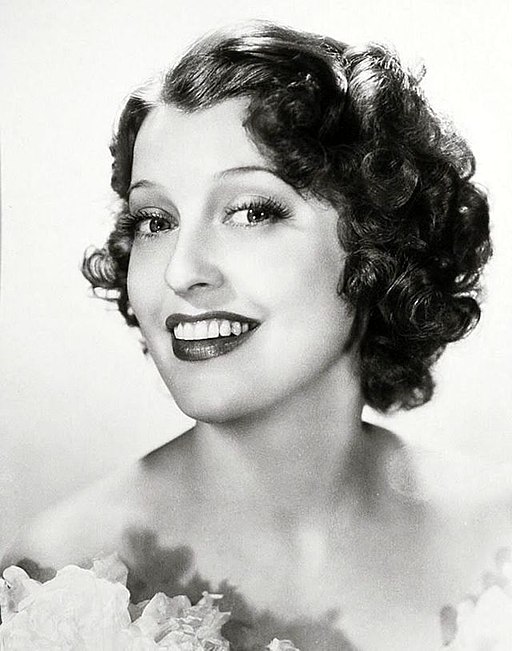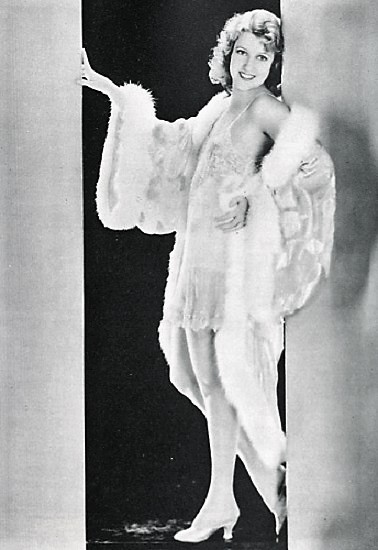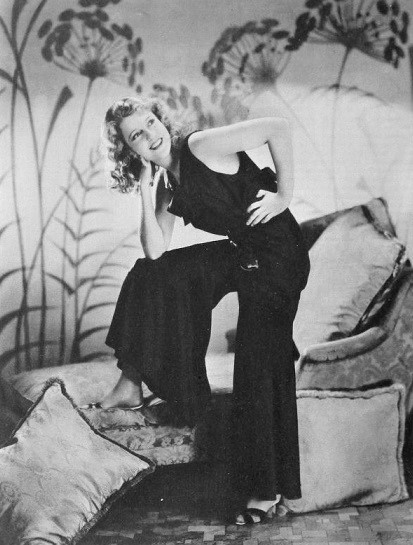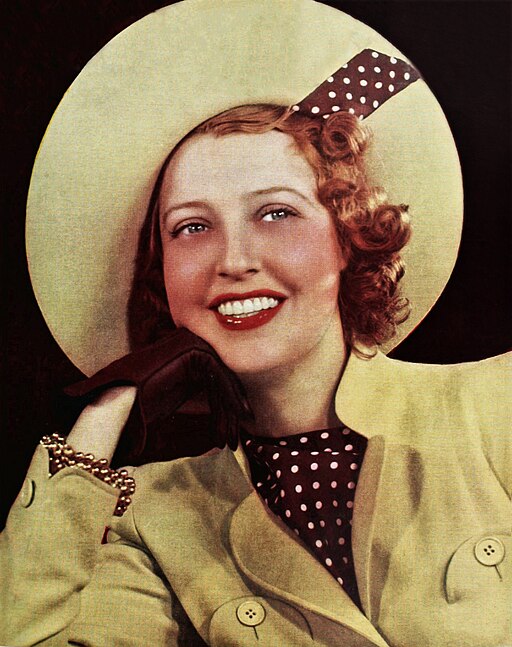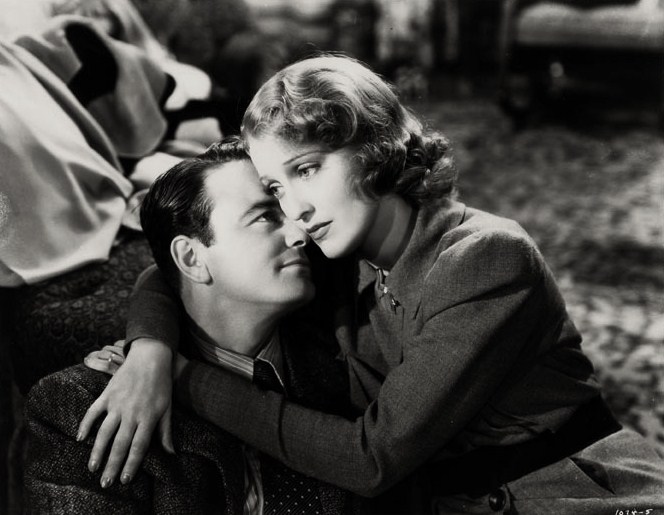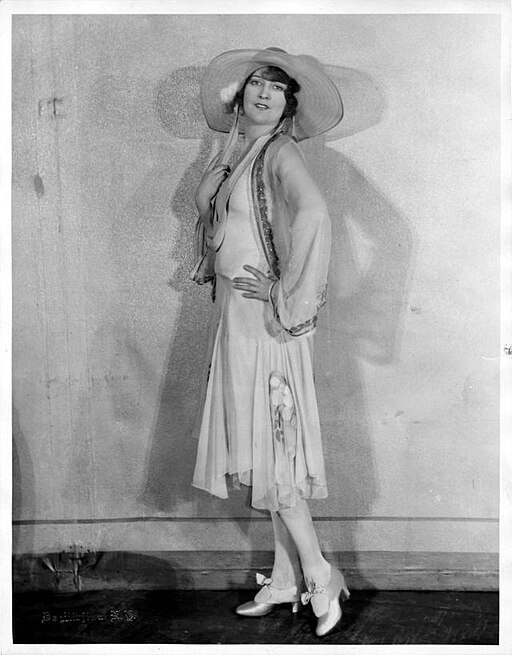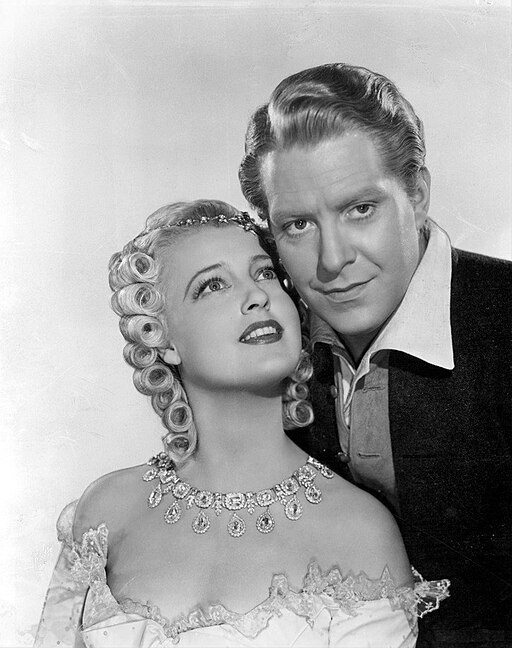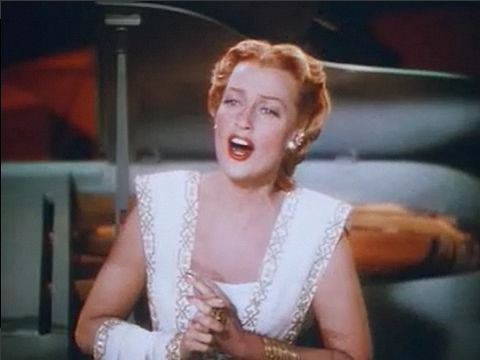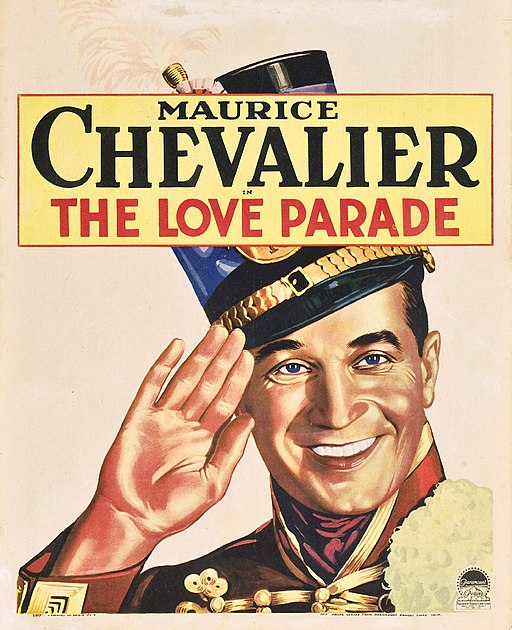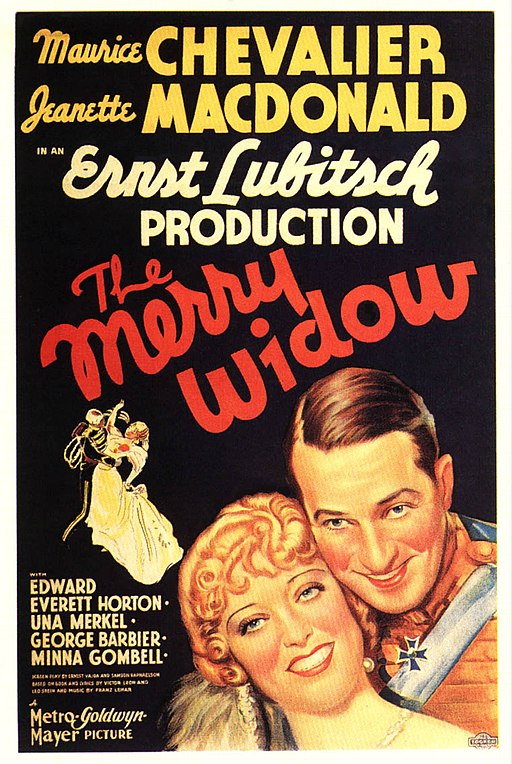Jeanette MacDonald
back| Full Name | Jeanette Anna MacDonald |
| Stage Name | Jeanette MacDonald |
| Born | June 18, 1903 |
| Birthplace | Philadelphia, Pennsylvania, USA |
| Died | January 14, 1965 |
| Buried | Forest Lawn Memorial Park, Glendale, California, USA |
| Married to | Gene Raymond (1937 until her death in 1965) |
| Children | None |
| Notable films | The Love Parade (1929) - Monte Carlo (1930) - The Merry Widow (1934) - Naughty Marietta (1935) - San Francisco (1936) |
Jeanette MacDonald
"The Iron Butterfly" of Hollywood's Golden Age
Jeanette MacDonald was born in Philadelphia, Pennsylvania, in 1903. She began her career in the entertainment industry on Broadway and transitioned to Hollywood with the advent of sound films. MacDonald quickly became a leading lady in musicals, renowned for her operatic voice and charismatic screen presence.
Her early success in films like "The Love Parade" and "Monte Carlo" established her as a major star of the era. MacDonald's collaboration with Maurice Chevalier in these films was highly praised. However, it was her partnership with baritone Nelson Eddy that made her a legend. The MacDonald-Eddy duo became synonymous with the romantic musical genre, captivating audiences with their on-screen chemistry and memorable duets.
Related
Jeanette MacDonald
Biography and Overview of her Career
Jeanette MacDonald's life story is one of glamour, talent, and dedication, set against the backdrop of Hollywood's Golden Age.
Born in Philadelphia, Pennsylvania, on June 18, 1903, Jeanette Anna MacDonald was the daughter of Daniel and Anna MacDonald. Growing up in a musically inclined family, she developed an early love for the arts. With a natural aptitude for singing, Jeanette honed her vocal skills, leading to her Broadway debut in 1919 in "The Night Boat." Her stage presence and singing prowess quickly caught the attention of Broadway audiences and critics alike.
Jeanette transitioned to Hollywood at the advent of "talkies," where her operatic voice and charismatic screen presence made her an instant success. Her breakthrough came with the film "The Love Parade" in 1929, where she showcased not only her singing abilities but also a flair for comedy and drama. This versatility became a hallmark of her career.
Hollywood Success and Iconic Partnerships
In Hollywood, Jeanette MacDonald became synonymous with the musical genre. Her collaborations with Maurice Chevalier in films like "Love Me Tonight" and "The Merry Widow" were celebrated for their romantic and musical chemistry. However, it was her partnership with Nelson Eddy that cemented her status as a Hollywood icon. Together, they starred in a series of successful operettas, including "Naughty Marietta" and "Rose-Marie," their voices and on-screen romance captivating the hearts of millions.
Personal Life and Marriages
Off-screen, Jeanette's personal life was less tumultuous than her cinematic romances. In 1937, she married actor Gene Raymond, a union that lasted until her death. While the couple had no children, their marriage was marked by mutual respect and shared interests in music and philanthropy.
Beyond her acting and singing, Jeanette was known for her love of music, often performing at concerts and events. She was also a dedicated philanthropist, involved in various charitable causes, especially during World War II, where she contributed significantly to the war effort through bond drives and entertaining troops.
Death and Legacy
Jeanette MacDonald's life came to a premature end on January 14, 1965, when she passed away from heart complications, a condition she had battled for years. She died in Houston, Texas, and was laid to rest at Forest Lawn Memorial Park in Glendale, California.
Jeanette MacDonald, often fondly referred to as "The Iron Butterfly," was a figure of grace and resilience in Hollywood. This nickname encapsulates her delicate, ethereal presence on screen, reminiscent of a butterfly, combined with her strong, determined personality off-screen.
Her death marked the end of an era, but her legacy lives on through her films and recordings. MacDonald remains a symbol of the Golden Age of Hollywood, her voice and screen presence a testament to her talent and artistry. Her work not only entertained millions during her lifetime but continues to be a source of inspiration and enjoyment for generations of fans. Jeanette MacDonald's story is a beautiful blend of artistic triumph and personal grace, making her one of the enduring icons of American cinema.
Jeanette MacDonald in "Naughty Marietta":
Relation with Nelson Eddy:
The relationship between Jeanette MacDonald and Nelson Eddy is one of the most storied and fascinating aspects of Hollywood's Golden Age. Known for their on-screen chemistry and successful string of musical films together, MacDonald and Eddy were among the most beloved singing duos in cinema history.
On-Screen Chemistry
- Professional Collaboration: Their collaboration began with the film "Naughty Marietta" in 1935 and continued through several more films, including "Rose-Marie" (1936), "Maytime" (1937), "The Girl of the Golden West" (1938), "New Moon" (1940), "Bitter Sweet" (1940), and "I Married an Angel" (1942).
- Musical Synergy: MacDonald and Eddy's voices complemented each other beautifully. Their duets became cinematic highlights, enchanting audiences with a blend of operatic skill and romantic storytelling.
Rumored Personal Relationship
- Off-Screen Speculation: There was widespread speculation and rumor about a romantic relationship between the two stars off-screen. Fans and some biographers have suggested that their on-screen romance spilled over into real life.
- Contrasting Accounts: Despite the rumors, both MacDonald and Eddy were married to other people during most of their careers. MacDonald was married to actor Gene Raymond, while Eddy was married to Ann Franklin. The true nature of MacDonald and Eddy's off-screen relationship remains a subject of debate among historians and fans, with some insisting it was purely professional and others claiming it was more intimate.
Impact on Popular Culture
- Iconic Duo: The pairing of MacDonald and Eddy became a cultural icon of the 1930s and 1940s. Their films together were immensely popular, and they were celebrated as one of Hollywood's most romantic on-screen couples.
- Enduring Legacy: Their legacy in the film industry is marked by the lasting popularity of their musical films. The duo set a high standard for on-screen romance and musical performance in cinema.
Personal Lives
- Separate Lives: Despite the rumors and on-screen romance, both MacDonald and Eddy maintained their respective marriages and professional careers outside of their collaborations.
Strength of the Acting Style of Jeanette MacDonald:
Jeanette MacDonald's acting style was a captivating blend of elegance, emotive expressiveness, and musical brilliance. Her performances transcended the mere portrayal of characters; they were artistic expressions that combined the allure of Hollywood glamour with the sophistication of operatic grace. Here's a detailed analysis of her style:
Grace and Elegance
MacDonald exuded a natural elegance and poise, both in her movements and in her demeanor. Her on-screen presence was often marked by a refined sophistication. Whether she was playing a mischievous countess or a determined pioneer woman, she brought a sense of class and refinement to her roles that became a signature aspect of her performances.
Emotional Expressiveness
One of the hallmarks of Jeanette MacDonald's acting was her ability to convey a wide range of emotions with subtlety and depth. She had a remarkable ability to express the inner turmoil or joy of her characters through her facial expressions and body language. Her eyes, in particular, were a powerful tool for conveying emotion, whether it was the sparkle of mischief, the glimmer of tears, or the depth of romantic longing.
Vocal Performance and Musicality
MacDonald's operatic training and natural vocal talent allowed her to integrate singing seamlessly into her acting. Her voice was not just a musical instrument but an extension of her acting, conveying character and story through song. She could express her character's feelings and thoughts through her singing in a way that dialogue alone could not achieve. This ability was particularly evident in her musical films with Nelson Eddy, where their duets became emotionally charged conversations.
Chemistry and Romantic Flair
In her romantic roles, MacDonald had an undeniable chemistry with her co-stars, especially with Maurice Chevalier and Nelson Eddy. This chemistry was a blend of playful flirtation, deep emotional connection, and mutual respect. Her on-screen romances were convincing because of her ability to portray both the light-hearted and profound aspects of love.
Versatility
While best known for her roles in musicals, MacDonald was not limited to this genre. She demonstrated versatility in her career, handling comedic roles with a light touch and dramatic parts with intensity. Her performance in "San Francisco," for example, showcased her ability to tackle more serious and complex characters, proving that her talents extended beyond singing and romantic comedies.
Awards and Recognition:
Jeanette MacDonald, despite her significant contributions to the film industry and her immense popularity during Hollywood's Golden Age, did not receive a large number of awards or nominations by today's standards. This is partly because the landscape of award recognition during her era, especially the early years of her career, was quite different from what it is now. The Academy Awards, for instance, were only established in 1929, and many other major awards that recognize film and music achievements today did not exist then.
Academy Awards (Oscars)
- Nominations: Jeanette MacDonald did not receive any Academy Award nominations during her career. This lack of recognition from the Oscars was not unusual for actors primarily known for musicals during this era.
Other Honors and Recognitions
- While specific awards and nominations for Jeanette MacDonald are scarce, her legacy in the entertainment industry is significant. She received recognition in other forms, such as star power, box office success, and enduring popularity.
- Hollywood Walk of Fame: Jeanette MacDonald has two stars on the Hollywood Walk of Fame, one for her contributions to the motion picture industry and the other for her work in radio. These stars are a testament to her versatility and enduring appeal as an entertainer.
- Posthumous Recognitions: Over the years, Jeanette MacDonald has been honored posthumously in various retrospectives and film festival tributes. These events highlight her significance in the history of cinema, particularly in the musical genre.
Cultural Impact
- Beyond formal awards, Jeanette MacDonald's impact can be measured by her influence on the musical film genre and her status as a fashion icon of her time. Her films with Maurice Chevalier and Nelson Eddy were incredibly popular and helped shape the musical landscape of Hollywood in the 1930s and 1940s.
- Her influence extended to the music world as well, with her recordings continuing to be appreciated by fans of classical and operatic music.
Memorable Quotes from Jeanette MacDonald:
From Her Movies
- "Ah, but it's not really the end. There'll be other songs to sing, other laughs and other joys for us, as long as we live." - From "Maytime" (1937), reflecting the enduring nature of love and joy beyond adversity.
- "When I'm calling you, will you answer too?" - From "Indian Love Call" in "Rose-Marie" (1936), part of the famous duet with Nelson Eddy, symbolizing the romantic call and response of love.
Personal Quotes
- "I'm a singer of songs, a weaver of dreams."
- "There is nothing new except what has been forgotten."
- "Faith is a necessary in a man's career. Without it, life is tragic."
Reflective and Inspirational
- "Keep looking ahead. The best is yet to come!"
Movies featuring Jeanette MacDonald:
1929
- "The Love Parade": MacDonald plays Queen Louise of Sylvania who falls in love with a charming French ambassador, Count Alfred (Maurice Chevalier). This romantic musical comedy was directed by Ernst Lubitsch.
1930
- "Monte Carlo": Jeanette stars as Countess Helene Mara, who goes to Monte Carlo where she attracts the attention of Count Rudolph Falliere (Jack Buchanan). It's a delightful mix of romance and comedy.
- "The Lottery Bride": MacDonald plays Jenny, a young woman who enters a lottery to marry her sweetheart, Chris, but ends up married to another man.
1931
- "Oh, for a Man!": Jeanette portrays Carlotta Manson, a fiery opera singer who is pursued by a burglar and an admirer.
1932
- "One Hour with You": Co-starring Maurice Chevalier, this musical comedy deals with marital fidelity, as Chevalier's character struggles with temptation.
- "Love Me Tonight": A classic musical where MacDonald's character, Princess Jeanette, falls for a tailor posing as a baron, played by Maurice Chevalier.
1934
- "The Merry Widow": Another collaboration with Chevalier, MacDonald plays Sonia, a wealthy widow, in this lavish romantic musical.
1935
- "Naughty Marietta": MacDonald pairs with Nelson Eddy, playing an incognito princess who falls in love with a captain.
1936
- "Rose-Marie": Another famous pairing with Nelson Eddy, set in the Canadian wilderness, where MacDonald's character falls for a Mountie.
- "San Francisco": A dramatic role, MacDonald plays Mary Blake, an aspiring singer in the 1906 San Francisco earthquake.
1937
- "The Firefly": Jeanette MacDonald stars as Nina Maria, who spies for Spain during the Napoleonic Wars.
- "Maytime": MacDonald and Eddy star in this romantic drama about an opera singer and her mentor.
1938
- "The Girl of the Golden West": MacDonald plays Mary, a saloon owner who falls for a bandit, unaware he's actually a sheriff.
1939
- "Broadway Serenade": Jeanette portrays an aspiring singer whose marriage is tested by her success.
1940
- "New Moon": MacDonald and Eddy team up again in this romantic musical set on a French colonial ship.
- "Bitter Sweet": A musical romance where MacDonald's character, Sarah, elopes with a music teacher.
1941
- "Smilin' Through": A romantic drama where MacDonald plays dual roles in a tale of love and revenge spanning generations.
1942
- "I Married an Angel": MacDonald teams with Nelson Eddy in a musical about a man who literally marries an angel.
1943
- "Cairo": Jeanette plays a movie star in this wartime musical comedy with espionage elements.
1948
- "The Sun Comes Up": MacDonald's final film, a heartwarming drama where she plays a widow who befriends a young boy and his dog.

